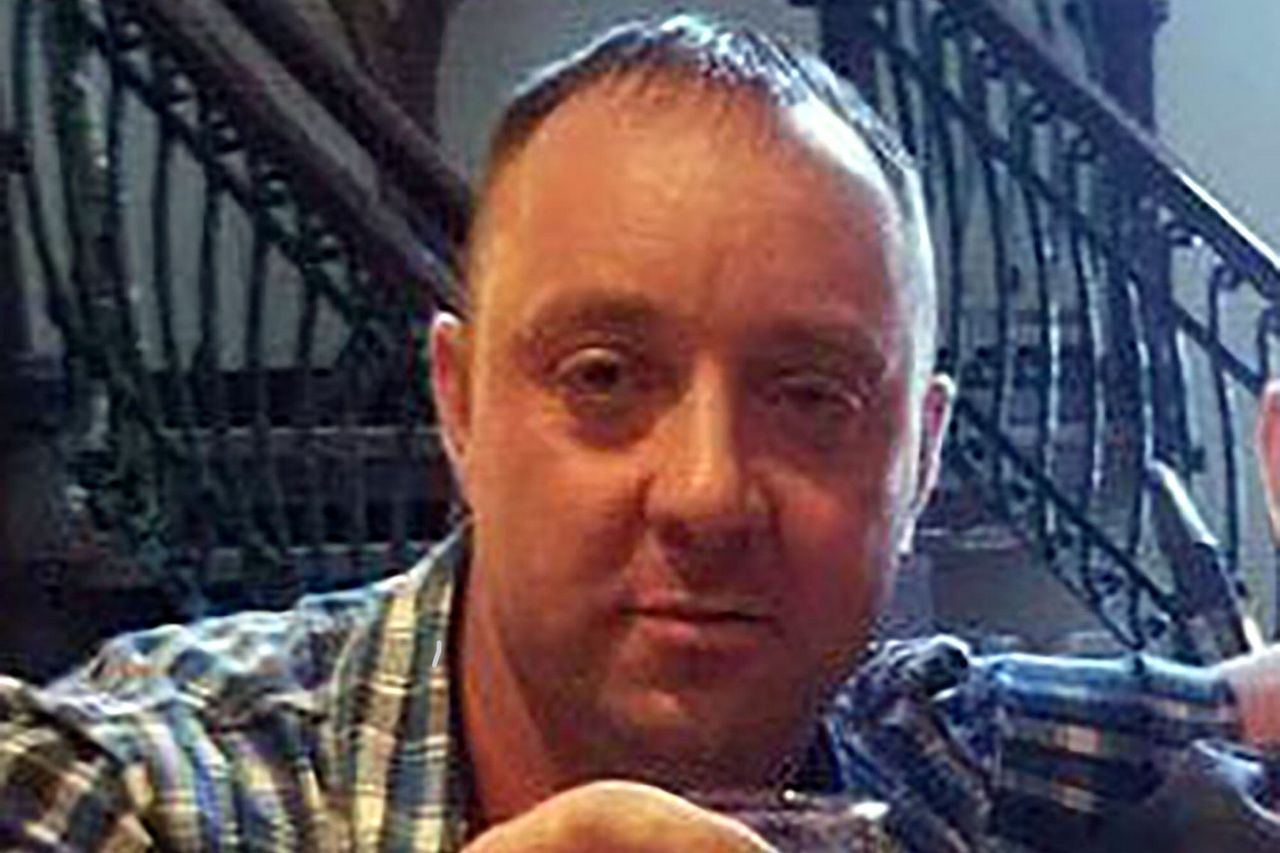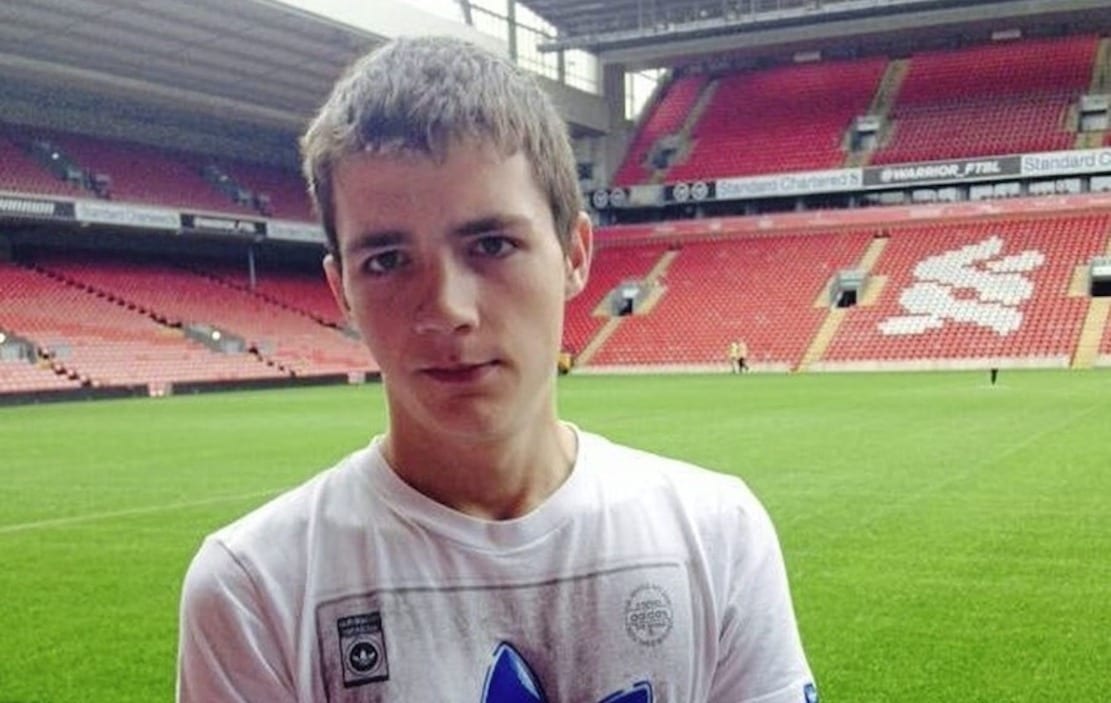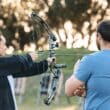
A knife killer who stabbed his victim almost 50 times to the head and neck in a brutal and frenzied attack was today (wed) ordered to serve at least 15 years of his life sentence.
John Paul Whitla stood seemingly emotionless in the dock of Craigavon Crown Court as Judge Patrick Lynch KC told the 44-year-old he had subjected Nathan Gibson to a frenzied attack and “gratuitous violence” on 16 January 2020.
Having stabbed the 25-year-old on a towpath near Lake Road in Craigavon Whitla, covered in his victim’s blood “went, of all places in a bizarre and morbid twist, to the home of Mr Gibson” where ironically, the murder victim’s partner helped clean her boyfriend’s blood off his killer.
She sat in the public gallery at the back of the court, listening intently and comforted by friends and relatives as Judge Lynch said the effects on her “has been truly heart rending”.
Related: Nathan Gibson’s heartbroken fiancée and sister react as John Paul Whitla handed 15 years for murder
Outlining how she was assaulted and held prisoner in the home she shared with Mr Gibson, only escaping when she used her bed to bounce through the first floor window, the judge said he could “readily imagine the fear engendered in her by his actions”.
Revealing that she has had to move house where she keeps pepper spray and a hammer, such is her level of fear, the judge said “the court can only hope…she can pick up the threads of her life”.
Last September Whitla, of no fixed abode and also known as eyeball Paul, was handed a life sentence after he was rearranged and entered a guilty to the murder of Mr Gibson on January 16, 2020.
The 44-year-old also admitted false imprisonment and common assault of his victim’s girlfriend arising from the same incident and Judge Lynch said his role today (Wednesday) was to set the minimum tariff the killer must serve before he can even be considered for release by the parole commissioners.
Apologising to Mr Gibson’s grieving relatives in the pubic gallery for having to describe the gruesome details of the horrific injuries he suffered, the judge said it was important to open them as the nature of the attack played a crucial role in deciding the appropriate sentence.
After Mr Gibson was reported as missing by his girlfriend, a police helicopter “detected a heat source” coming from where his body was ultimately found and when police arrived, they saw that he had suffered “numerous stab wounds”.
Judge Lynch recounted how a post mortem examination ascertained that “death was due to stab wounds of the head and neck” and he described how Mr Gibson had been stabbed through the skull, throat, cheek and eye socket.
Two wounds were particularly serious, he told the court, one where the knife was plunged through the victim’s eye socket and into his brain and the other through his cheek but which penetrated so deeply it had lacerated his jugular vein.
That latter wound would have caused “copious bleeding and Mr Gibson’s fairly rapid death,” said Judge Lynch, adding that the tip of the knife had broken off and remained embedded in the victim’s skull.
The judge told the court while the victim had suffered 50 wounds to his head and neck, “there were no injuries to his upper limbs that constituted defence injuries”.
In the aftermath of the brutal and frenzied attack, the blood covered Whitla went to Mr Gibson’s home and claiming he had been hurt, convinced his victim’s girlfriend to help clean the blood off.

Nathan Gibson
She noticed however that Whitla did not have any wounds and “he calmly said that he had killed Nathan,” said the judge, adding that she realised there was an element of truth to it as, recognising Whitla had the victim’s mobile phone, “she knew he would not have handed over his phone voluntarily”.
“She told him not to be silly but the defendant repeated that he had killed Nathan and he then said to her why are you panicking, there’s nothing to be worried about, I’m not going to hurt you, you’re a lovely wee girl,” the judge told the court.
Despite claims of not intending to harm her, Whitla stopped her from leaving the property, ordering to her to stay “until Nathan came back”.
Over the next period of time, the drink and drug addled Whitla fluctuated between claiming that Nathan was fine and would be back and often within the same sentence, telling his petrified victim that “he worked for ‘The Firm’ and that they had him kill Nathan”.
He repeated that he had killed Nathan and that he had owed ‘The Firm’ £7,000 for cocaine but the debt was taken out in Nathan’s name and he said that ‘The Firm’ had to “deal with Nathan for that”.
The judge explained how ‘the firm’ are a “local gang of thugs and drug suppliers” and at one stage, Whitla grabbed his terrified victim by the throat but she managed to break free and ran up the stairs into her bedroom, using her bed like a trampoline to jump out the first floor window and run to a neighbour’s house to summon help.
Arrested and interview, Whitla denied responsibility for the killing, initially claiming instead that he and Nathan had gone to buy drugs when they were attacked by “two or three men who had been hiding in the bushes”.
During later interviews, when DNA evidence was put to Whitla, he conceded that he “probably did” stab Mr Gibson but also claimed “I never had no knife”.
Whitla also denied completely all of the allegations made by Mr Gibson’s fiancee, labelling them as “all lies” but Judge Lynch said the forensic evidence “firmly puts him at the scene”.
Turning to sentencing principles and guidelines, Judge Lynch said there were multiple aggravating factors to the case including the nature of the attack, the gratuitous violence used and Whitla’s criminal record of 89 previous convictions, leading him to conclude it was a case for a “higher starting point”.
In mitigation, the judge said while Whitla had admitted his guilt it was not at the first opportunity but there were other factors to take into account including his “extremely low IQ”.
The record, including previous convictions for serious assaults where Whitla assaulted a partner with a pickaxe handle and has multiple entries for drugs “demonstrates a capacity for violence”.
Judge Lynch said it would be “an affront to justice” if the offences against Mr Gibson’s fiancee were subsumed in the murder tariff so instead, he intended to add them on to the tariff.
To that end, the judge imposed a 15 year minimum tariff and explained to Whitla that “for the avoidance of doubt” the tariff is the absolute minimum period he will spend in jail.



